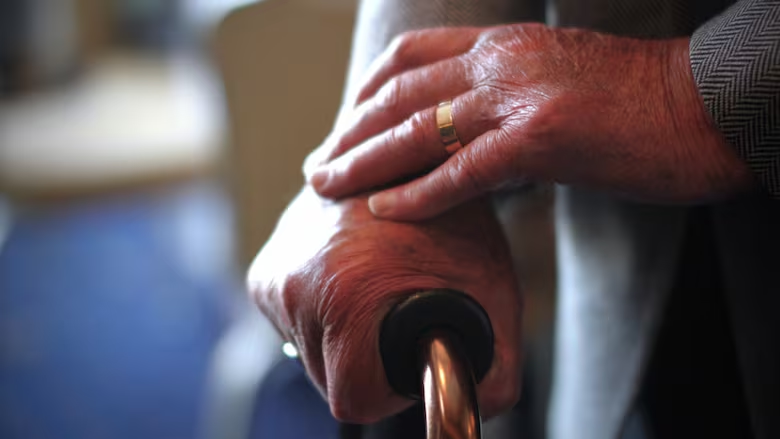More programs needed to help aging caregivers, researcher says
New report shows nearly 50% of Canadians between 55 and 64 are providing some sort of care

Nearly half of Canadians between the ages of 55 and 64 are in some kind of caregiver role, according to a new study.
The Canadian Longitudinal Study on Aging, which, beginning in 2010, followed more than 50,000 men and women for 20 years, has released it's first report on health and aging in Canada.
Lynne Young — one of the lead researchers on care giving and care receiving and a professor of nursing at the University of Victoria — says the findings show some patterns.
"Levels of isolation are greater for people who are caregivers and care receivers which is concerning," she said.
And beyond that, Young says, the financial and social supports needed for those who take time off work and out of their social lives are lacking.
She says it's a problem that's been known for over a decade.
Same problems, different decade
Young references the Romanow Commission Report, which was published and delivered in 2002. It was a committee study that proposed changes to the way the the federal government approached health care.
"Romanow stated that health-care system could not function without those informal caregivers, and, at that time, recommend policies and programs to mitigate the burden of care," she said.
Yet, she says, they were never implemented.
"As far as I can determine, those programs and policies have not been put into place and that's 16 years ago."
Looking forward
Young says she hopes data from the 20-year study will be compelling enough for policymakers to finally make some changes.
"From a scientific perspective, the evidence that comes out of the study will be very high quality evidence that will be believable by program and policy makers," she said.
With files from All Points West